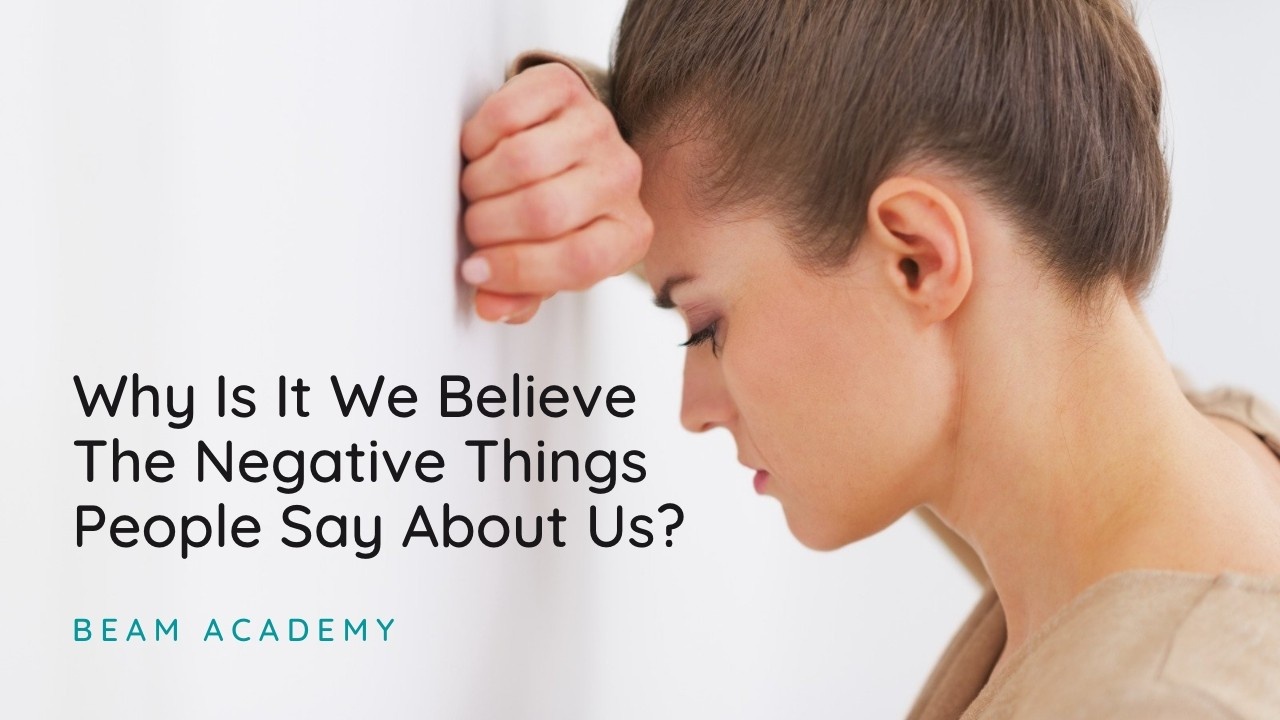Why Is It We Believe The Negative Things People Say About Us?
Aug 31, 2021
Why is it that as humans we allow negative comments or negative events to affect us and influence us so much more than a positive comment, compliment, or event?
Psychologists refer to this as negativity bias. “Our brains are wired to scout for the bad stuff” and fixate on the threat, says psychologist and author Rick Hanson
Negativity bias means that we feel the sting of a rebuke more powerfully than we feel the joy of praise. Not only do negative events and experiences imprint more quickly, but they also linger longer than positive ones. In other words, for a multitude of reasons including biology and chemistry, we’re more likely to register an insult or negative event than we are to take in a compliment or recall details of a happy event.
For example, you may be at a party having an amazing time and then suddenly someone bumps into you and you spill your red wine down you. You may end up remembering that day for the accident, categorizing your day as a negative experience even though the entire evening was actually positive. Or, you have just come out of the hairdressers with a new hairstyle, that you love. If you get 5 positive compliments and 1 negative comment you are more likely to fixate on that 1 negative opinion and in the future your thoughts about that hairstyle will be tainted by that one comment.
But the good news is that we can overcome this vicious circle of insecurity, anger and all the other negative emotions that follow.
The most important factor is not what other people say to us but how we talk to ourselves. It’s not the reviews we get from others but how we review ourselves.
Of course, it is important to take into consideration the opinions of those around us that we value and listen to what is being said, but it is how we interpret that information that is key. How we talk to ourselves about our experiences.
Being mindful of the perception we have of what is being said and how it is affecting our thoughts is crucial. Putting effort into truly focusing and valuing all the good and positive aspects of our life will help you overlook the negatives. If you challenge yourself to be mindful of your daily activities and thoughts, making a point to notice what is important and what isn’t, then you are more likely to have positive life experiences and even if you are facing a multitude of negative situations at a certain point in your life, if you can try to appreciate every positive moment, however small then you will start overriding that natural notion of negativity bias.
Here are some ways to counterbalance our predisposition towards negativity:
- The 3 minute breathing space is a good step to take if you find yourself being drawn into the vortex of negative thoughts or feelings. Inhale for the count of 3, hold your breath for the count of 3 and exhale for the count of 3.
- If there is a negative self-dialogue going on approach it as if you were talking to a friend. Be kind and ask yourself questions like “Why are you so angry?”, “Is this comment actually true?” and if no “Why am I allowing it to trigger me?” if yes “What can I do to adjust/alter?”. The idea is to interrupt yourself and change the narrative.
- Don’t overanalyse everything. Sometimes just moving, shifting the energy will allow you the space and time to look at a situation with a different perspective.
Eleanor Roosevelt famously said: “No one can make you feel inferior without your consent.”
Sign Up For Our Monthly Newsletter
Receive monthly emails with news, blogs and articles about teacher training courses, yoga, mindfulness, education and so much more.
We hate SPAM. You'll only get quality content.

